Interested in the prospect of contributing to disease study and research for doing nothing but owning a smartphone? Sony’s making that a reality for owners of their Xperia phones thanks to the launch of the new Folding@Home mobile app.
If you’re not aware, Folding@Home began as a project that would help supplement the protein folding simulations being carried out by Stanford’s research teams to try and cure diseases like Alzheimer’s. The purpose of the study is to simulate and analyze the process of a protein folding in order to understand what goes wrong in the folding process that leads to the unfortunate development of these diseases in people.
It’s their hope that the project will help speed up research without having to spend tons of money on supercomputer farms or having to spend countless man hours inside a research lab to study actual organisms (which is quite difficult due to how quickly the folding process for a protein takes place — less than millionths of a second for most proteins).
Sony first showed support for the project with their PlayStation 3 gaming console. The app — dubbed Folding@Home — allowed users to “donate” processing time to the cause. The data would then be uploaded to a central database for the Stanford team to collect from. This gave them far more processing power than they could hope for and allowed them to break records for folding simulations.
Now they hope to do it all over again in mobile. The team has been working on the app for a couple of years now, and are comfortable enough with the powerful processing capability of smartphones and the stability of their app to release it in beta form.
A member of the Folding@Home team — Dr. Vijay Pande — says they would need about 150,000 “phone days” to be able to publish the next big paper on protein folding and Alzheimer’s research. A “phone day” is described as one phone running 24 hours per day, 7 days per week in a year. With just 10,000 phones contributing a full phone day, he says that mark could be reached in a matter of just a couple of weeks.
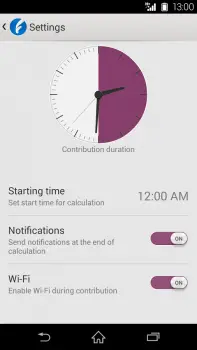 Of course, it will likely take much longer for that to happen as the Folding@Home simulation requires a few different conditions for it to do its thing:
Of course, it will likely take much longer for that to happen as the Folding@Home simulation requires a few different conditions for it to do its thing:
- The phone has to be connected to a charger and fully charged to 100%
- The phone must be connected to a WiFi network
- The phone must meet the previous conditions with a specific set of time which you set.
Then, and only then, will Folding@Home siphon off some of your phone’s processing power to carry out the simulation. Those aren’t the most ideal stipulations for most folks. That’s why Sony suggests letting your phone carry the simulations out as you sleep every night. Your phone is plugged in, after all, and you probably aren’t going to be needing your phone for much of anything else while you’re in your nightly temporary coma.
Sony also stresses that they and Standford University have looked into potential security risks, and have assured us that Folding@Home does not, in any way, interface with any other app’s data, the phone’s memory or anything other than raw processing power and your WiFi connection for transmitting data.
Heard enough? Sony Xperia owners can head to the Google Play Store right now for their download, though those outside of the Sony camp will have to wait until the app exits beta at some point in early 2015 before they can contribute some processing time to a very important cause (granted they have a phone with an ARM processor and at least Android 4.4 KitKat).
[via Sony]


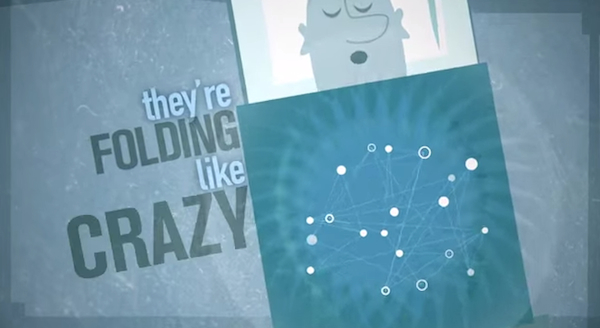
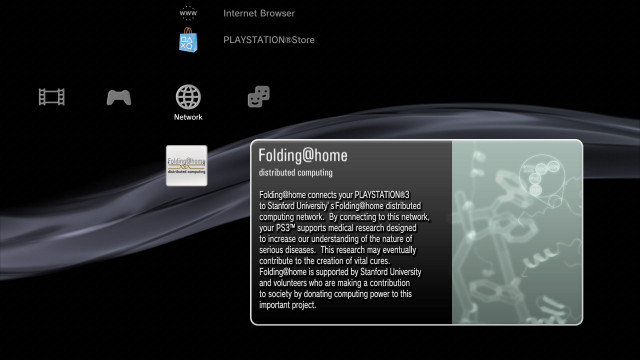

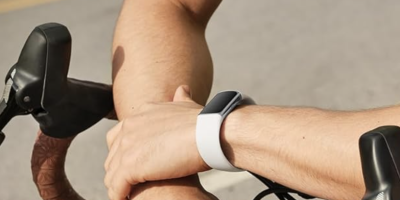
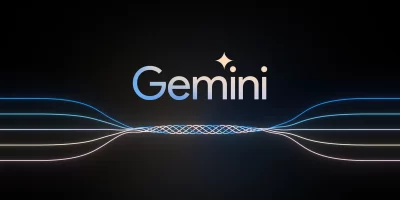





This thing is designed for us to help and it’s not compatible with any of my devides. They’re doing it wrong, this should not be only xperia compatible, since it has a bigger purpose
It’s fair enough if the alpha is for limited devices, but a beta? What does a Xperia running KitKat have that any other device doesn’t?
Or you can just install the BOINC app and set it up to work with folding@home or many other distributed computing projects. BOINC is what this is most likely a front end for.
Yes, samsung also has something similar, though I didn’t like how it worked:
https://play.google.com/store/apps/details?id=at.samsung.powersleep
I used to use BOINC, then I got lollipop. No longer works and no updates in months to fix it.
This sounds interesting but I am wondering if this will effect the lifespan of my phone?
I can almost guarantee that it will adversely effect it
When they open this up to most phones, I have a few older phones sitting around that I might plug in to this cause. (My dad has alzheimers, so there’s an amount of self interest in this for me)
Folding @home is a great project but people need to realize they aren’t just donating processing power and some bandwidth, you’ll be donating a good prob if your battery lifespan, and electricity as well. Given smartphones are pretty inefficient when you really push them I hope this isn’t pushing them too hard or we could be wasting a lot more electricity than necessary
seti@home…as far as I know it’s been running on desktops for ever.
1999
Which is damn near forever in computer years! :D
HTC was one of the first to do it, and it supports more than just a devices. When I had a compatible device I used it.
https://play.google.com/store/apps/details?id=com.htc.ptg
Ran folding@home on my laptop for years. :D
Not compatible with Note 3….fail!
They should also caution people about being careful about heat. People who sleep with their phone I their pillow could do some damage.
I’d do this but I’d forget.